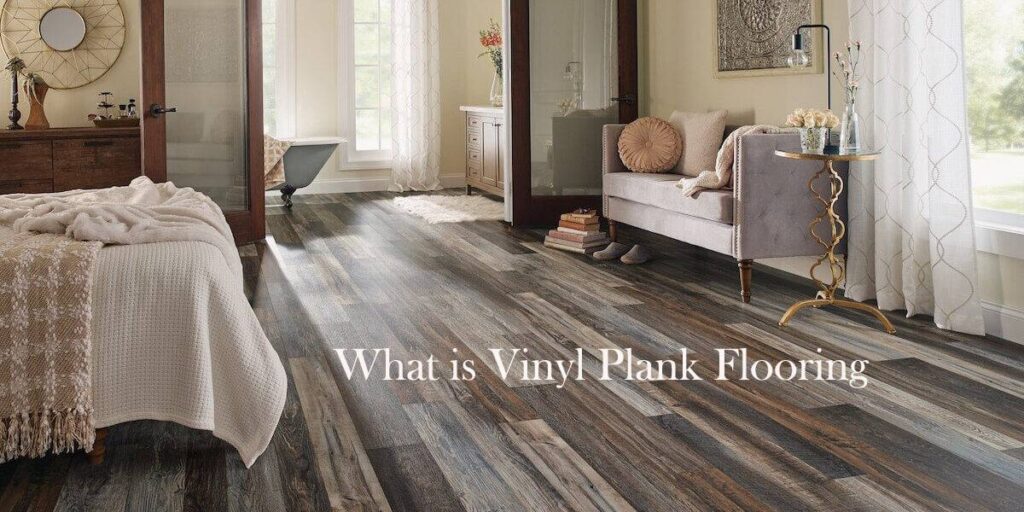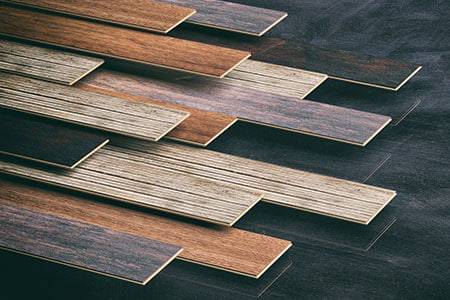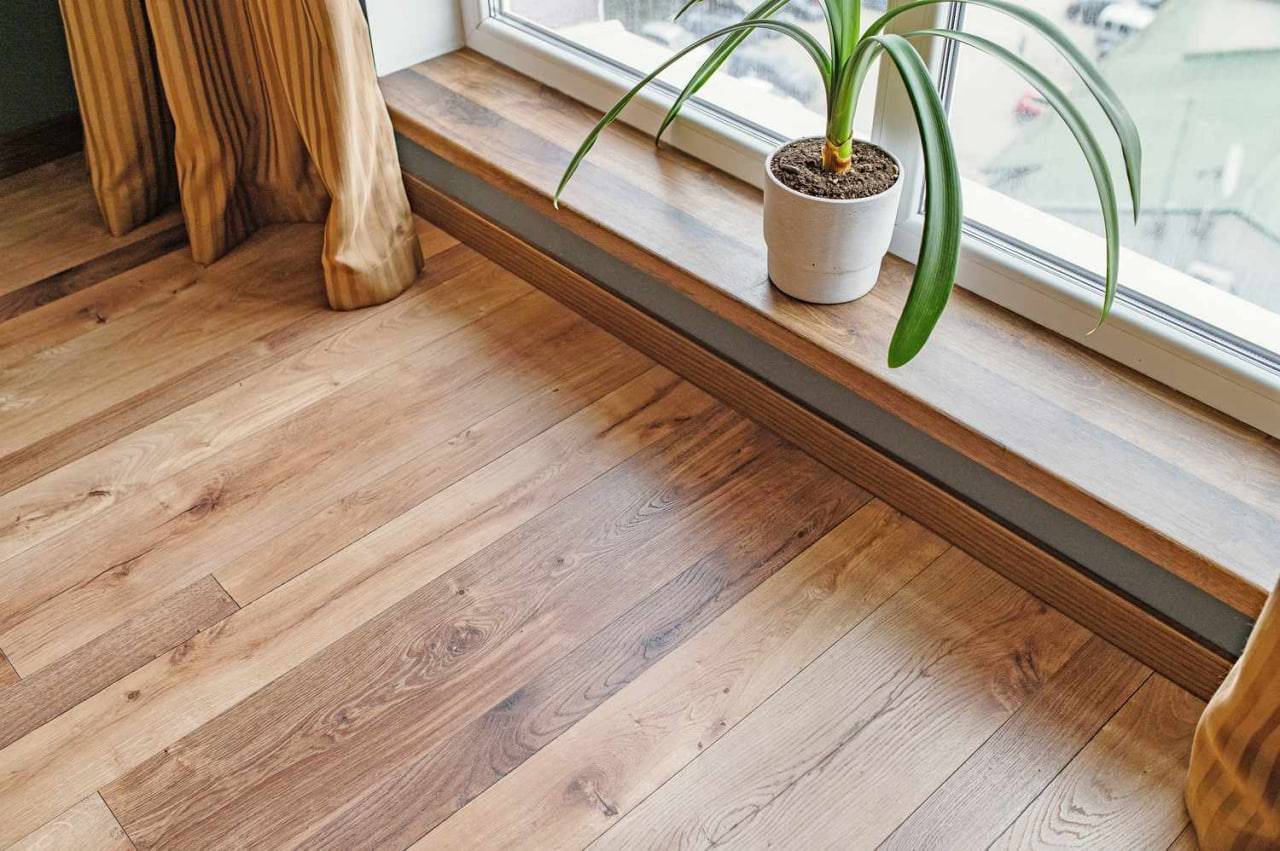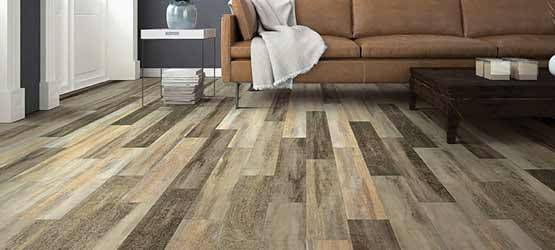Stepping into the world of flooring options can feel overwhelming, with materials like hardwood, tile, and laminate vying for your attention. But there’s one rising star that deserves a closer look: vinyl plank flooring.
Gone are the days of flimsy sheet vinyl; modern vinyl planks have transformed the game, offering exceptional durability, realistic visuals, and easy maintenance, all at an attractive price point.
Let’s delve into the fascinating world of vinyl plank flooring and explore what makes it such a compelling choice for your home renovation or new build project.
What is Vinyl Plank Flooring?
Vinyl plank flooring is a type of resilient flooring made to resemble hardwood, stone, or other materials in the form of long, narrow planks. It’s typically constructed with multiple layers:
- Top wear layer: Made of durable materials like PVC or vinyl, it protects against scratches, stains, and fading.
- Printed design layer: This layer creates the realistic wood, stone, or tile visuals, with advanced printing techniques mimicking intricate details and textures.
- Core layer: Often made of PVC or recycled wood, it provides stability and structure to the plank.
- Backing layer: This layer can be made of felt or cork, offering additional sound dampening and comfort.
Different Types of Vinyl Plank
Vinyl plank flooring comes in a surprising variety, each with its own strengths and characteristics to suit different needs and budgets. Here’s a breakdown of the main types:
Luxury Vinyl Plank (LVP):
LVP is the top-of-the-line vinyl plank option, known for its exceptional realism, durability, and comfort. Its core can be made of:
- Wood Plastic Composite (WPC): Offers a softer, quieter feel underfoot, but may be slightly less dimensionally stable.
- Stone Plastic Composite (SPC): Boasts superior rigidity and water resistance, making it ideal for high-traffic areas and moisture-prone zones.
- Rigid Core: Combines the strengths of WPC and SPC, offering outstanding stability and waterproofness.
Solid Vinyl Plank (EVP):
A more basic and budget-friendly option, EVP features a homogeneous vinyl construction throughout its thickness. While not as realistic as LVP, it’s durable, easy to clean, and well-suited for low-traffic areas.
Peel-and-Stick Vinyl Plank:
This self-adhesive type offers the ultimate in DIY installation. Simply peel off the backing and stick it down, making it ideal for temporary flooring or accent applications. However, it’s thinner and less durable than other options.
Glue-Down Vinyl Plank:
For a secure and permanent installation, glue-down planks require adhesive to adhere to the subfloor. This method offers excellent stability and sound dampening, but professional installation is often recommended.
Loose-Lay Vinyl Plank:
Similar to peel-and-stick, loose-lay planks interlock without adhesives, making them easy to install and remove. However, they’re best suited for low-traffic areas due to their lack of permanent attachment.
Choosing the Right Type:
The best vinyl plank type for you depends on your specific needs and priorities. Consider factors like:
- Budget: LVP is generally the most expensive, followed by WPC and SPC core options. EVP and peel-and-stick are more budget-friendly.
- Traffic: High-traffic areas require sturdier options like SPC or glue-down planks.
- Moisture: For bathrooms and laundry rooms, waterproof LVP with SPC or rigid core is essential.
- DIY vs. Professional Installation: Choose click-lock or peel-and-stick for DIY, while glue-down might require professional help.
- Décor Style: From classic woodgrains to modern tiles, vinyl planks offer a vast array of styles to match your vision.
By understanding the different types and their characteristics, you can make an informed decision and choose the perfect vinyl plank flooring to enhance your space!
Advantages of Vinyl Plank Flooring:
- Durability: Vinyl plank flooring is exceptionally durable, resistant to scratches, dents, scuffs, and fading, making it ideal for high-traffic areas like kitchens, bathrooms, and entryways.
- Water resistance: While not entirely waterproof, it does well with spills and splashes, making it suitable for moisture-prone areas like bathrooms and laundry rooms (choose SPC or rigid core for these spaces).
- Easy maintenance: Requires minimal cleaning compared to other flooring options like hardwood or tile. Sweeping, mopping, and occasional deeper cleaning are all that’s needed.
- Comfort: Warmer and softer underfoot than tile or hardwood, offering a more cushioned feel, especially with thicker planks and underlayment.
- Versatility: Comes in a vast array of styles, colors, and textures to mimic real wood, stone, tile, and more, seamlessly blending with various decor styles.
- Affordability: Generally more cost-effective than hardwood or stone, offering a budget-friendly alternative.
- Easy installation: Many vinyl plank options feature click-lock systems for DIY-friendly installation, reducing labor costs.
Disadvantages of Vinyl Plank Flooring:
- Not entirely waterproof: While water resistant, prolonged exposure to moisture can damage the flooring, so be mindful in areas like basements or wet rooms.
- Non-repairable: Scratches, dents, or deep gouges cannot be repaired and require plank replacement. Choose higher quality, thicker planks for better scratch resistance.
- Potential off-gassing: Some vinyl flooring, especially cheaper options, can emit volatile organic compounds (VOCs) during and after installation. Look for low-VOC or Green Guard-certified products.
- Not as authentic as real wood: While realistic visuals have improved, it may not completely replicate the look and feel of genuine wood or stone.
- Can feel synthetic: Some users may find the feel of vinyl less natural compared to other materials like hardwood or tile.
- Difficulties with uneven subfloors: Installation may be challenging on uneven subfloors and might require additional preparation work.
Conclusion
In conclusion, vinyl plank flooring has emerged as a compelling choice for homeowners and businesses seeking a balance of durability, style, and affordability. Its diverse range of types, from luxury vinyl plank (LVP) to peel-and-stick options, caters to various budgets and needs. It boasts impressive stain, scratch, and water resistance, making it ideal for high-traffic and moisture-prone areas. The ease of maintenance and comfort underfoot add to its appeal.
However, it’s essential to consider potential drawbacks like non-repairability, off-gassing from some products, and a less authentic feel compared to natural materials. Weighing the pros and cons alongside your specific needs and priorities will help you determine if vinyl plank flooring is the perfect fit for your next project. With its versatility, practicality, and ever-evolving options, vinyl plank flooring offers a strong contender in the world of flooring solutions, ready to enhance the look and feel of your space.
Vinyl Plank Flooring FAQs:
Is vinyl plank flooring a good choice for pets?
Generally yes, thanks to its scratch and stain resistance. Choose high-quality planks and trim pet nails for added protection.
Is vinyl plank flooring safe for children?
Yes, vinyl flooring is generally safe for children. Look for low-VOC and phthalate-free options for added peace of mind.
Is vinyl plank flooring cold underfoot?
Not necessarily. Choose thicker planks with an underlayment for increased warmth and comfort.
Can vinyl plank flooring be used outdoors?
Not typically. Most vinyl planks are designed for indoor use and may not withstand outdoor elements. Check the manufacturer’s specifications for details.
Can I install vinyl plank flooring myself?
Many click-lock systems make installation DIY-friendly. However, glue-down or uneven subfloors might require professional help.
What tools do I need to install vinyl plank flooring?
Basic tools like a utility knife, tape measure, and tapping block are typically needed. Refer to the specific installation instructions for detailed requirements.
Do I need underlayment for vinyl plank flooring?
Underlayment can be beneficial for added comfort, sound dampening, and moisture protection. Choose the appropriate type based on your subfloor and plank choice.
How do I clean vinyl plank flooring?
Regular sweeping and mopping with manufacturer-recommended cleaners are sufficient. Avoid harsh chemicals, abrasive cleaners, and excessive water.
What can damage vinyl plank flooring?
Sharp objects, excessive moisture, and harsh chemicals can cause damage. Use furniture protectors, address spills promptly, and stick to recommended cleaning practices.
Can I refinish vinyl plank flooring?
No, vinyl planks cannot be refinished like hardwood. However, regular maintenance and care can help them retain their appearance for years.
Is vinyl plank flooring eco-friendly?
Some vinyl flooring options are made with recycled materials and low-VOC emissions. Look for eco-friendly certifications when choosing your planks.
What is the lifespan of vinyl plank flooring?
With proper care, vinyl plank flooring can last 10-20 years or even longer.
Where can I buy vinyl plank flooring?
Home improvement stores, flooring specialists, and online retailers offer a wide selection of vinyl plank flooring options.




